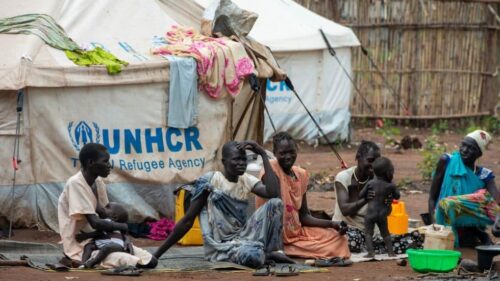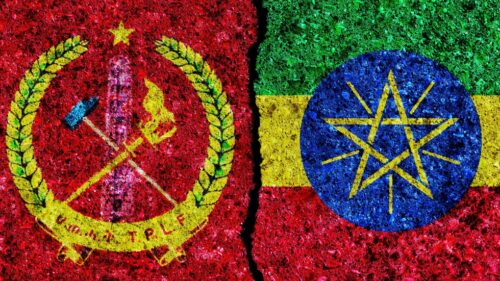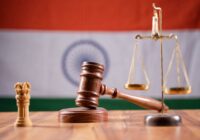In his resignation letter, the former Vice-President of the Federal Republic of Cameroon and one of the key architects of the 1961 federal union, John Ngu Foncha, exclaimed: “The Anglophone Cameroonians whom I brought into union have been ridiculed and referred to as ‘les Biafrais’, ‘les ennemies dans la maison’, ‘les traitres’ etc., and the constitutional provisions which protected this Anglophone minority have been suppressed, their voice drowned while the rule of the gun replaced the dialogue which the Anglophones cherish very much.”
However, the current President, Paul Biya, have long maintained that the Anglophone “problem” Foncha discusses does not exist and that the government rather “has often tried to minimalize the Anglophone-Francophone divide by highlighting the existence of a common identity under German colonial rule and the official recognition in all the post-colonial constitutions of the bilingual and multicultural nature of the Cameroonian nation.” Nevertheless, despite the denial, the Cameroon government has resorted to “intimidation, corruption and repression” to dispel the Anglophone population’s demand for independence or autonomy, suggesting that a problem does in fact exist. This suppression has led to a bloody language war.
Historical Background
Until the end of the First World War, Cameroon (formerly Kamerun) was a German protectorate. However, following Germany’s defeat, it was divided by the League of Nations between Great Britain and France. The territory under the British was further divided into two administrative regions: Northern Cameroon and Southern Cameroon. While the British pursued a policy of indirect rule that conferred a large degree of autonomy to their part of the territory, France constructed a highly centralized colonial territory.
Following the Second World War, Great Britain and France began to relinquish their colonial territories. In the referendum that took place on February 11, 1961, British Southern Cameroon was confronted with the decision to either join Nigeria (which was joined by British Northern Cameroons) or the newly emerging Francophone La République du Cameroun (the Republic of Cameroon). South Cameroon chose the latter, but their hope “to preserve their cultural specificity” as part of French Cameroun was short-lived.
The origin of the Anglophone problem
The Anglophone problem has its origins in the Foumban Constitutional Conference of 1961. The Conference, held in July 1961, created a constitution for the new Federal state consisting of the British Southern Cameroon and La République du Cameroun. It also set the stage “for the birth of the Federal Republic of Cameroon on October 1, 1961, which reunited two pieces of the former German Kamerun, both with very distinct political cultures.”
The conference is, however, remembered as a turning point where the promise of a truly bilingual and bicultural federation began to fall apart. Anglophones, representing 9% of the total population, were forced to accept a highly centralized system of government and administration. This laid the groundwork for many of the ongoing tensions between the Anglophone and Francophone communities.
An amendment was made to the Constitution in 1984, which has only served to exacerbate the Anglophone problem further. The 1984 amendment changed the country’s official name from the United Republic of Cameroon to the Republic of Cameroon. This alteration was not merely symbolic. It marked a shift from the federal structure enshrined in the 1961 Constitution, which had recognized and protected the unique identity of British Southern Cameroons (later known as West Cameroon). By adopting the new name, the amendment effectively erased the legal and cultural distinctions of the Anglophone regions.
Today, the Anglophone community demands the restoration of West Cameroon’s cultural identity and the implementation of the articles of the Constitution that had once pledged to safeguard the values and institutions that British Southern Cameroons had brought into the Union in 1961.
Linguistic and economic hegemony
As Mufor Atanga declares, “the Federal Republic of Cameroon came into being in 1961 as the first ‘bilingual’ federation in Africa.” However, Atanga notably put the bilingual descriptor in quotation marks. Although the Foumban Conference declared that both French and English were Cameroon’s two official languages, the latter has been significantly marginalized since. From the inception of the unified state, French has been established as the language of administration and official communication. Government institutions, legal proceedings and public services are primarily conducted in French, which not only centralizes administrative power but also creates barriers for those who are more comfortable in English or local languages. As a result, the Francophone elite today holds disproportionate power. This linguistic preference of the French is not by any means accidental; it is a deliberate policy designed to solidify a single national identity, one that aligns with the cultural legacy of French colonial rule.
The educational system further illustrates how the French language functions as a tool of domination. In many schools across Cameroon, the curriculum is predominantly taught in French. Textbooks, teaching methods and examinations reflect this orientation. In 2016, teachers in the English-speaking regions of North West and South West Cameroon went on strike, along with lawyers, protesting against the “francophonization“ of the English educational system. The teachers saw these measures as part of a broader pattern of state centralization and cultural assimilation. By mandating French as the language of administration and public discourse, the state has thus created a barrier that has effectively excluded Anglophone Cameroonians from full participation in public life and represents a clear instrument of control.
Economic exploitation has further kindled discontent. Francophone-dominated Cameroon has systematically exploited the economic resources of the Anglophone regions whilst providing little infrastructural development in return. The Southwest and Northwest regions are rich in oil, timber and agricultural resources. Yet, it is these same areas that remain underdeveloped, with poor roads, failing schools and inadequate healthcare services. The Biya government has kept economic and social activities in the North West and South West Regions of Cameroon at bay, with serious socioeconomic implications on the local communities and the economic tissue of the regions.
Most of Cameroon’s crude oil, which accounts for approximately 12% of the country’s GDP, is located in West Cameroon, off the coast of the South West Region. The state-controlled oil sector, SONARA (Société Nationale de Raffinage), is also ironically located in Limbe in the Anglophone region of Cameroon. The revenues from the oil industry, however, overwhelmingly benefit the Francophone elites, leaving local communities to bear the brunt of environmental degradation and economic neglect. Similar dynamics exist in the timber industry, where foreign corporations (often backed by the Francophone elite) extract high-profit resources with little reinvestment in local communities. This exploitation not only perpetuates regional economic disparities but also deepens the political and cultural alienation felt by the Anglophone community.
Systematic repression
Amnesty International’s report in 2023 has exposed some of these human rights abuses in Cameroon’s Anglophone regions, where state security forces have been accused of arbitrary arrests, extrajudicial killings, torture and rape. The report documents how these brutal tactics have been deployed against activists, journalists and civilians who advocate for greater autonomy and a federal system. As pointed out in the report, “Cameroonian authorities must act to end the violence against the population and conduct thorough investigations into the killings, acts of torture, rapes, burning of houses and other atrocities committed in the Anglophone region.”
Anglophone movements that aspire to federalism or secession have been the main targets of such repression. The introduction of multi-party politics in the early 1990s and the easing of restrictions on freedom of association led to the formation of various opposition parties and pressure groups. Among these, the Social Democratic Front (SDF) emerged as a significant voice for the Anglophone community and has articulated the frustrations of those who have felt sidelined by the centralized Francophone-dominated state. Members of these Anglophone movements, however, have been harassed by the security forces, threatened with arrest, and subjected to travel restrictions, forcing some to go into exile. The state has also repressed public demonstrations and protests organized by the SDF. This includes violent crackdowns during rallies, which are often characterized by the use of excessive force. For instance, in the protests that took place in 2016, security forces deployed tear gas, batons and live ammunition, killing four people. In addition to this, police crackdowns on gatherings and ghost town actions (shutting down a town as a form of protest) have been met with violent dispersals.
The way forward
The Anglophone problem is not simply a vestige of a troubled past; it is a living crisis that continues to shape the nation’s destiny. In Cameroon’s case, the cultural wars have turned into a civil war. By favoring a Francophone elite, the state has not only undermined the cultural identity and rights of the Anglophone minority, but it has also fueled cycles of repression and conflict. Only by acknowledging and rectifying these systemic disparities can Cameroon hope to fulfill the promise of a truly bilingual and bicultural nation that was originally agreed on in 1961.
[Asmita Adhikari edited this piece.]
The views expressed in this article are the author’s own and do not necessarily reflect Fair Observer’s editorial policy.
Support Fair Observer
We rely on your support for our independence, diversity and quality.
For more than 10 years, Fair Observer has been free, fair and independent. No billionaire owns us, no advertisers control us. We are a reader-supported nonprofit. Unlike many other publications, we keep our content free for readers regardless of where they live or whether they can afford to pay. We have no paywalls and no ads.
In the post-truth era of fake news, echo chambers and filter bubbles, we publish a plurality of perspectives from around the world. Anyone can publish with us, but everyone goes through a rigorous editorial process. So, you get fact-checked, well-reasoned content instead of noise.
We publish 3,000+ voices from 90+ countries. We also conduct education and training programs
on subjects ranging from digital media and journalism to writing and critical thinking. This
doesn’t come cheap. Servers, editors, trainers and web developers cost
money.
Please consider supporting us on a regular basis as a recurring donor or a
sustaining member.
Will you support FO’s journalism?
We rely on your support for our independence, diversity and quality.









Comment